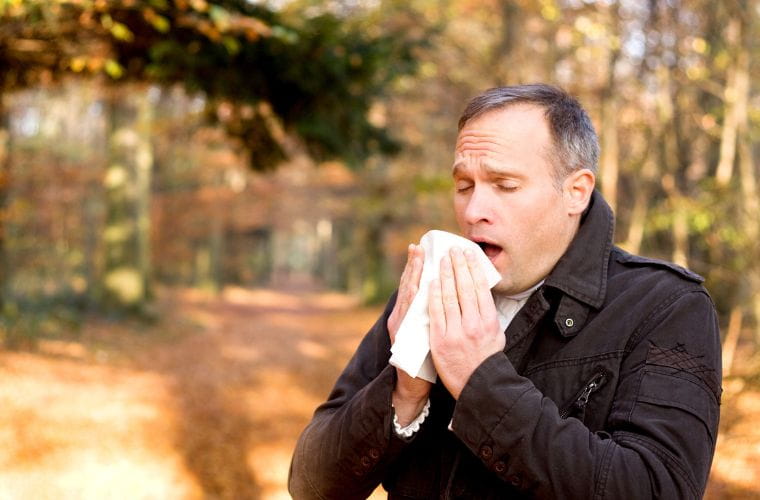Managing Allergies in Every Season

Allergy season can occur at any point during the year, with springtime being the most prevalent because several types of allergens can lead to symptoms. According to the Asthma and Allergy Foundation of America, more than 50 million people suffer from allergies each year, making it the sixth leading cause of chronic illness in the U.S.
When the immune system responds to an allergen, it releases a chemical known as histamine into your bloodstream to fight off the substance. When this chemical is released, symptoms of an allergic reaction develop. Some common allergy symptoms include runny nose, watery eyes, sneezing, coughing, itchy eyes and nose or dark circles under your eyes.
“It is important to understand what you may be allergic to, the time of year you typically are affected, and the best ways to combat the allergies,” said BayCare’s VP/Chief Quality Officer Dr. Laura Arline, MD, FACP, FAAP. “Uncontrolled allergies may not only lead to allergy symptoms you’d expect, but may also impact your sleep, mental health, and potentially increase your risk for chronic sinus infections.”
Let’s explore the most common types of allergies in each season so you can be better prepared for allergy triggers.
Spring
Pollen released by plants in the spring causes it to be the time of year that most people experience seasonal allergies. Some specific tree allergens include oak trees, birch trees, cedar, alder, horse chestnut, willow and poplar.
Summer
Trees are typically done emitting pollen by late spring, but grasses and weeds will trigger summer allergies. Plants that may cause your sniffles include weeds such as ragweed, cockle weed, pigweed, Russian thistle, sagebrush and tumbleweed. Grasses are the most common trigger for people with hay fever.
Fall
Different plants can trigger seasonal fall allergies including ragweed (the most common), burning bush, cocklebur, lamb’s-quarter, pigweed, sagebrush, mugwort, tumbleweed and Russian thistle. Grasses, including Bermuda, blue grasses, orchard, red top, sweet vernal and Timothy are some of the common culprits.
Winter
In the winter, indoor allergens cause most allergies, as opposed to outside factors that lie dormant this time of year. Examples include dust particles and dust mites, mold, mildew, pests (such as cockroaches and mice) and pet dander.
To find out if one or more of these triggers is causing your symptoms, talk to your primary care physician or visit BayCare Urgent Care, BayCareAnywhere or BayCare Walk-In Care to inquire about getting tested for allergies. BayCare Laboratories offer a full range of allergy testing at all its locations across the Tampa Bay area. By getting a simple allergy blood test, you and your physician can uncover what may be causing your symptoms, what allergy trigger to avoid and practical steps for reducing your exposure to allergens.
For more information, visit BayCare Laboratories.
